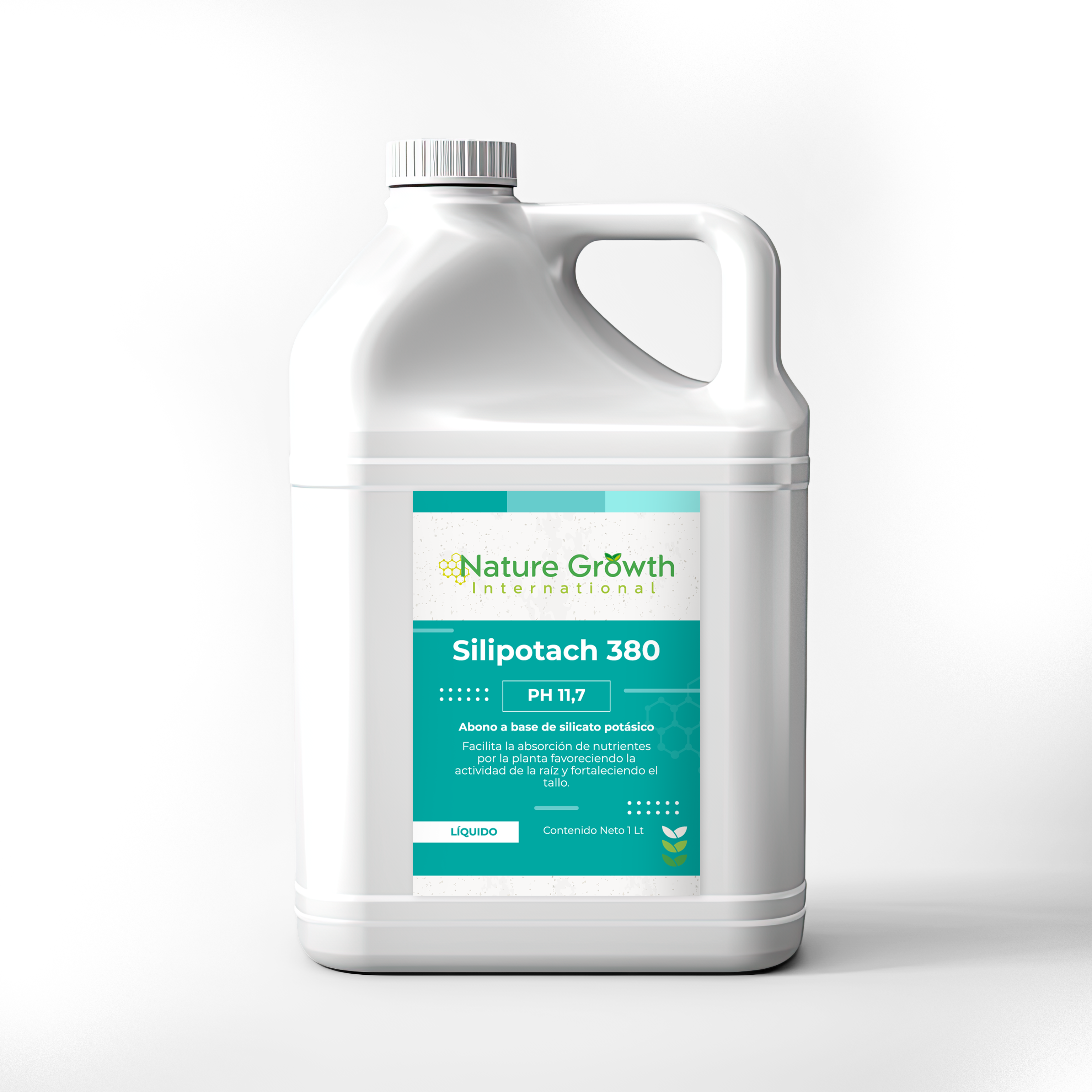Description
COMPOSITION
| Component | Content |
|---|---|
| Potassium silicate | 38.0% – 52.44% |
| Available silicon (Si) | 11.59% – 16.0% |
| Soluble silicon (SiO2) | 14.92% – 20.60% |
| Available potassium oxide (K2O) | 12.50% – 17.25% |
| Density | 1.38 g/cc |
| pH | 11.7 |
| Solubility | 99.5% |
SILIPOTACH 380 is a highly soluble liquid fertilizer based on potassium silicate. It enhances nutrient absorption, stimulates growth, strengthens stems, and increases resistance to diseases and stress. It also reduces free moisture on crop surfaces, creating a hostile environment for pathogens such as Botrytis cinerea, Sclerotinia sp., powdery mildew, and downy mildew.
POTASSIUM IN AGRICULTURE
Potassium is an essential nutrient, though it is often limited in soil availability. It appears in three forms:
- As a structural part of soil minerals.
- Exchangeably adsorbed on soil colloids (clay and organic matter).
- In soil solution, readily available to plants.
Potassium is key to crop performance, especially in:
- Drought periods.
- Disease resistance.
- Improved quality in fruits and vegetables.
This mobile cation is absorbed in large quantities and redistributed to young tissues. Its deficiency reduces turgor and resistance to water stress and diseases.
IMPORTANCE IN DISEASE PREVENTION
Potassium promotes the thickening of cell walls, making it harder for pathogens to enter. Balanced fertilization reduces both parasitic diseases (fungi, bacteria, viruses, nematodes) and non-parasitic diseases (environmental factors).
High potassium levels reduce soil fungi, while excessive nitrogen favors them. Benefited crops include citrus, fruit trees, vegetables, and ornamentals.
RATES AND APPLICATIONS
Foliar application:
- Citrus and fruit trees: 150–200 cm³/hl, 2–3 applications.
- Vegetables: 100–200 cm³/hl, 2–3 applications.
- Flowers and ornamentals: 100–200 cm³/hl, 2–3 applications.
- Tropical fruit trees: 150–250 cm³/hl, 2–3 applications.
- Olives and vines: 150–250 cm³/hl, 2–3 applications.
- Herbaceous and woody crops: 100–250 cm³/hl, 2–3 applications.
Fertigation:
- Citrus and fruit trees: 7–10 l/ha.
- Vegetables: 4–7 l/ha.
- Flowers and ornamentals: 4–7 l/ha.
- Tropical fruit trees: 5–10 l/ha.
- Olives and vines: 4–9 l/ha.
INCOMPATIBILITIES
SILIPOTACH 380 should preferably be used alone due to its alkaline nature. If mixed, check the pH after incorporation before adding other products, and adjust to neutral pH if necessary. Keep out of reach of children, food, beverages, and animal feed.


